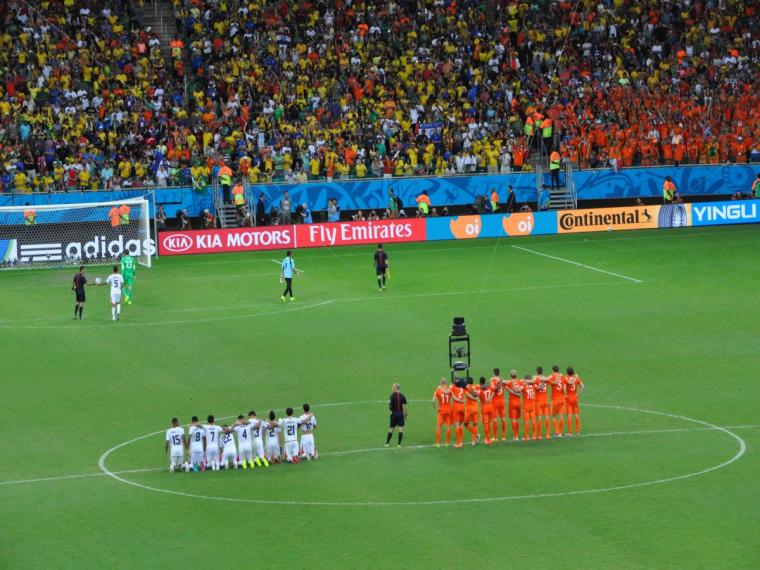

A suggestion is on the table to move the FIFA World Cup and Women’s World Cup to every two years, instead of four.
As Goal.com reports: “The organization will launch a feasibility study into the ramifications of such a decision after a proposal was put forth by the Saudi Arabia Football Federation (SAFF) at the annual congress.”
“We believe the future of football is at a critical juncture,” SAFF president Yasser Al-Misehal said when making his pitch. “The many issues that football has faced have now been further exacerbated by the ongoing pandemic. It is important to review how the global game is structured, which should include whether the current four-year cycle remains the optimum basis for how football is managed both from a competition and a commercial perspective as well as overall football development. Having fewer yet more meaningful competitive national team matches could potentially address concerns regarding player welfare whilst at the same time enhancing the value and merit of such competitions.”
The proposal has merit but might not sit well with fans, according to Inside the Games, a website that covers global sporting events.
“Any change to the four-year cycle would likely prompt a large backlash from fans worried about the tournaments being devalued, while leading to a packed calendar with continental tournaments also needing to be scheduled,” Dan Palmer, a Middle East correspondent for Inside the Games, writes. “Saudi Arabia is increasingly throwing its hat into the ring to host sporting events, with the Kingdom funded by vast reserves of oil and gas. It is highly likely that the World Cup will be on its radar. ... In 2019, current FIFA President Gianni Infantino said the Women’s World Cup could be held every two years to aid the development of the sport. Women’s international football is not overshadowed by club teams in the same way the men’s game can be, so this switch could perhaps have more traction.”
Any changes to the World Cup schedule likely are years away, and FIFA President Gianni Infantino says not to expect any rash decisions. “We have to go into these studies with an open mind, but we are not going to take decisions which will jeopardize what we are [already] doing,” he told reporters after the congress. “We know about the value of the World Cup, believe me.”
Indeed, World Cups are FIFA’s primary source of revenue, according to London’s Daily Mail, and the proposal to study the possibility of hosting the tournaments every two years was met with overwhelming support by FIFA’s national federations.
While it’s too soon to tell what impact a potential long-term World Cup scheduling move might have on the word’s sports tourism economy, it could be a boon for countries where soccer struggles.
“We believe this will bring future growth to football ... and for our regions, which are lagging behind to develop,” said Fouzi Lekjaa, president of the Moroccan Football Federation, speaking on behalf of the Confederation of African Football in endorsing the FIFA study. “Hopefully, this will allow us to reach our target of truly global football.”
The next World Cup — the 22nd edition of the competition — is slated to take place in November and December 2022 in Qatar. The 2010 decision to award the tournament to Qatar, the first Muslim-majority country to host a World Cup, was met with controversy almost immediately. Detractors cited not only Qatar’s small size and heat (which is why the event was moved from the summer months) but also the country’s poor human rights track record. Workers toil in unsafe conditions, and homosexuality is illegal. Sepp Blatter, FIFA’s president at the time of the Qatar announcement, later admitted “that Qatar and Spain colluded to trade votes for their respective 2018 and 2022 World Cup bids.”
In addition to Qatar, four other countries were in the running to host the 2022 World Cup: Australia, Japan, South Korea and the United States.
The U.S., Canada and Mexico will host the 2026 World Cup, when the tournament field will expand from 32 to 48 teams. Matches will be played in a total of 16 cities, with the U.S. hosting 60 of them — including the quarterfinals, semifinals and finals. Canada and Mexico will each host 10 matches, marking the first time three countries will host the World Cup.

